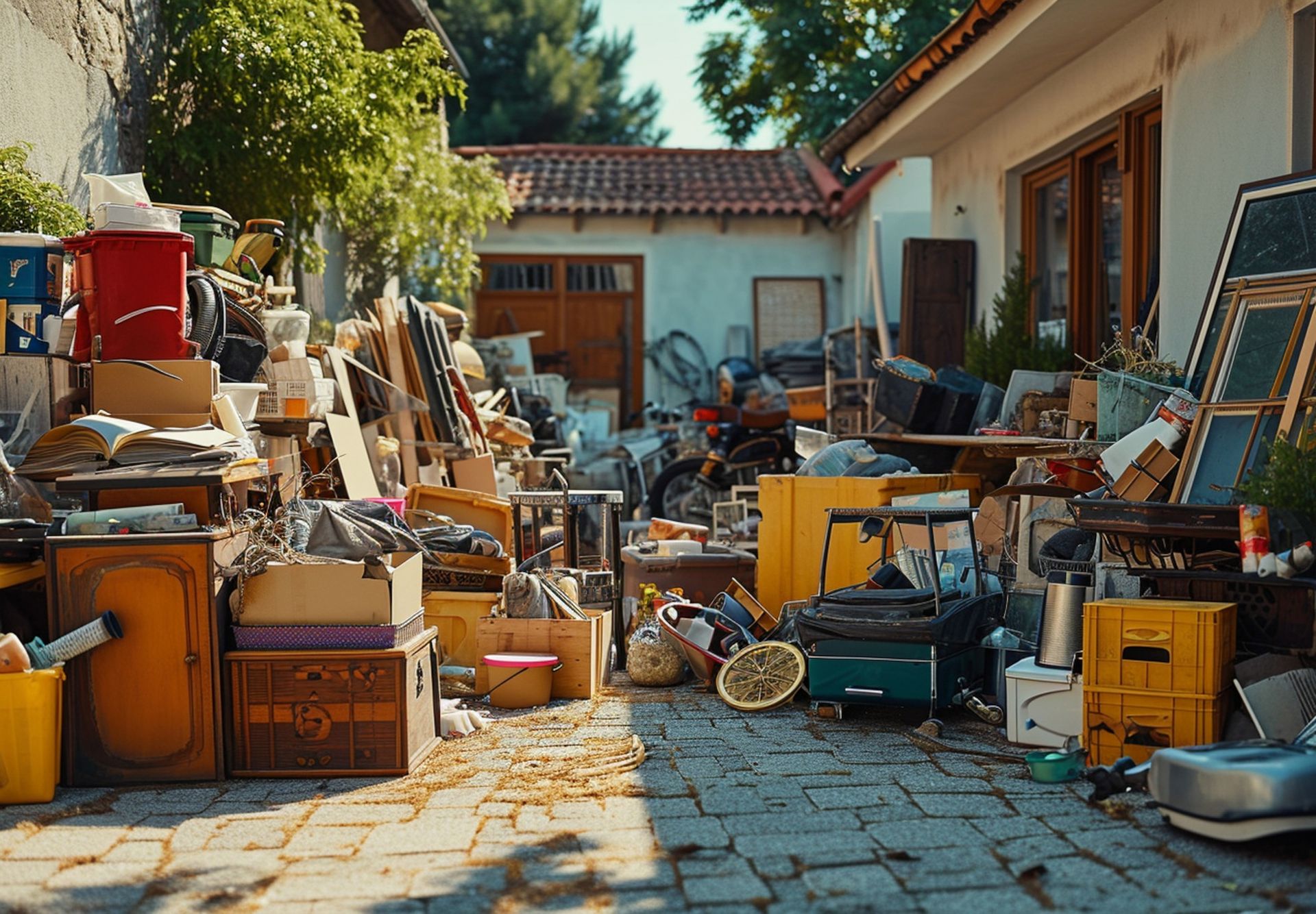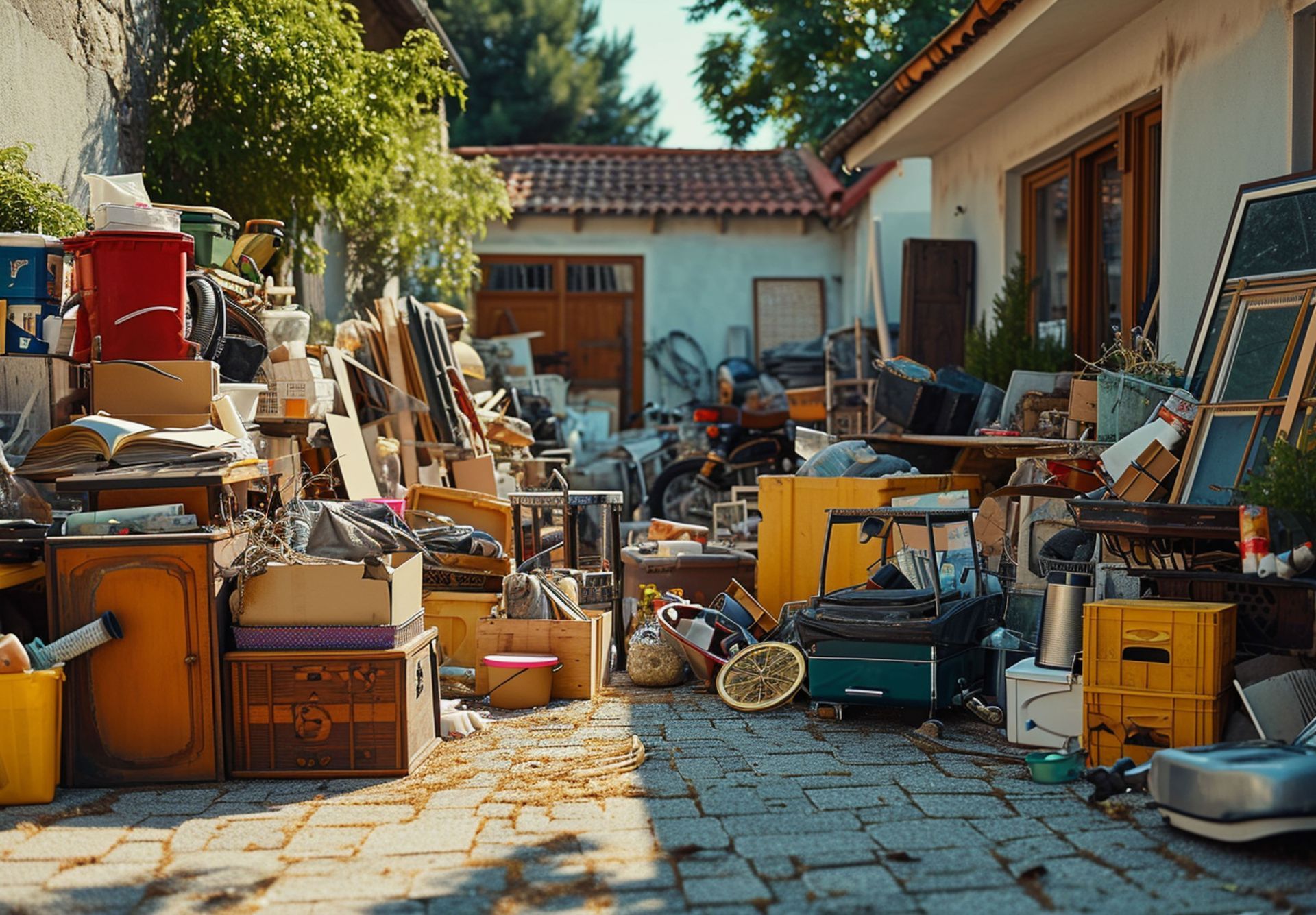What to Do with Old Appliances
What to Do with Old Appliances
Knowing how to get rid of old appliances responsibly is crucial when it comes to making decisions about them. Getting rid of these items in a thoughtful way not only helps reduce clutter but also has a positive impact on the environment. On the other hand, throwing them away improperly can harm the environment. By choosing eco-friendly options, we can minimize waste and conserve resources.
There are also personal benefits to consider, such as the possibility of making money through resale or recycling, as well as the satisfaction of reducing your ecological footprint. By embracing sustainable ways to dispose of old appliances, you become part of a larger movement to protect our planet while also enjoying individual rewards.
1. Assessing the Condition of Your Old Appliances
Determining whether an old appliance is in a usable condition involves several key considerations. Begin by testing its functionality: does it power on and operate as expected? Simple checks, like observing any unusual noises or performance issues, can indicate potential problems.
When conducting an appliance evaluation, age and wear are significant factors. Appliances over a decade old may have outdated technology, making them less efficient compared to modern alternatives. Review the manufacturer's guidelines for lifespan estimates and maintenance tips.
Safety issues should not be underestimated. Inspect electrical cords for frays or damage, and check for any leaks in appliances such as dishwashers or washing machines. Faulty appliances pose hazards like fire risks or water damage.
Prioritizing these checks ensures you make informed decisions about your old appliances, potentially saving you from costly repairs or dangerous situations. This groundwork sets the stage for deciding their next chapter—whether selling, donating, recycling, or removal.
2. Selling Your Old Appliances
1. Selling Directly to Consumers
Selling old appliances directly to consumers can be a lucrative way to clear out your space while making some extra cash. The key is knowing where to list your items and how to present them effectively.
Best Platforms for Selling:
- Facebook Marketplace: This platform offers a broad audience and allows you to connect with potential buyers in your local area. It's user-friendly, and the messaging feature enables quick communication with interested parties.
- Craigslist: Known for its simplicity and wide reach, Craigslist is another excellent choice for selling used appliances. You can list your items by category and location, making it easy for buyers to find you.
Tips for Creating Appealing Listings:
- Clear Photos: High-quality images are crucial. Take multiple angles of the appliance, focusing on any unique features or flaws that might be of interest to the buyer.
- Detailed Descriptions: Include essential information such as brand, model, age, condition, and any repairs or maintenance history. Be honest about wear and tear to build trust with potential buyers.
- Competitive Pricing: Research similar listings to set a competitive price. Consider the age, condition, and market demand when pricing your appliance.
- Highlight Benefits: Mention any energy efficiency features or brand reputation that might add value to the appliance.
- Prompt Communication: Respond quickly to inquiries. Buyers appreciate timely responses, which can lead to faster sales.
Using these platforms and strategies effectively positions you to sell old appliances successfully, turning unused items into cash while ensuring they find a new home instead of heading to the landfill.
b. Used Appliance Shops And How To Find Them?
Identifying local shops willing to buy used appliances can be a strategic move when looking to sell old appliances. Here are some effective ways to locate these shops:
1. Online Directories
Websites like Yelp, Google Maps, and Yellow Pages list used appliance shops in your area. A quick search with keywords like "sell old appliances" or "used appliance shops near me" can yield numerous results.
2. Local Marketplace Platforms
While online platforms such as Facebook Marketplace and Craigslist are known for direct consumer sales, they also serve as excellent resources for finding local businesses interested in purchasing used items.
3. Community Boards
Check community bulletin boards often found in libraries, community centers, or local coffee shops. These boards might have listings from businesses seeking second-hand appliances.
When selling to these shops, payment offers typically depend on the appliance's condition:
- Excellent Condition: Appliances in near-new condition often fetch higher prices. Shops may offer 50% or more of the original purchase price.
- Good Condition: Functional but visibly worn items might bring about 30%-40% of their initial cost.
- Poor Condition: Even non-functional appliances can be sold for parts, though prices may be significantly lower.
Selling through used appliance shops can be a convenient option, particularly if you prefer not to deal directly with buyers. This method also ensures that your old appliances are repurposed or recycled responsibly.
3. Donating Old Appliances: A Win-Win Solution
Benefits of Donating Appliances ForCommunity Support AndEnvironmental Impact
Donating old appliances offers several advantages that resonate beyond personal gain. When you choose to donate, you're giving your appliances a second life, which can significantly benefit both your community and the environment. Here are some key benefits:
- Community Support: Donating appliances can provide essential resources to families or individuals who may not have the means to purchase new items. Non-profit organizations and community centers often distribute these donations to those in need, fostering a spirit of community care and support.
- Environmental Impact: Keeping appliances out of landfills through donation reduces environmental strain. It minimizes waste and conserves resources by extending the life cycle of these products. This sustainable practice helps lower greenhouse gas emissions and reduces the demand for new materials.
Real-world examples showcase the positive impact of such donations:
- Habitat for Humanity ReStores: These nonprofit home improvement stores accept donated household goods, which are then sold at affordable prices. The proceeds help build homes and communities, making a tangible difference in people's lives.
- Goodwill Industries: Known for its extensive network of thrift stores, Goodwill uses donations to fund job training programs, helping individuals find employment and achieve financial independence.
These stories highlight how donating old appliances can transform lives while contributing positively to environmental preservation. By taking this step, not only do you declutter your space responsibly, but you also play an active role in supporting sustainable practices and community welfare.
b. Tax Breaks for Donations: What You Need to Know?
Donating old appliances not only benefits the community and environment but also offers potential financial perks through tax deductions. To qualify for these deductions, there are several steps you need to follow:
- Choose a Qualified Organization: Ensure that the organization receiving your donation is eligible to provide tax-deductible receipts. Typically, these are registered 501(c)(3) nonprofits or equivalent.
- Document the Donation: Keep detailed records of what was donated, including a description of the appliance, its condition, and the date of donation. This information is crucial when claiming a deduction.
- Obtain a Receipt: Securing a receipt from the organization is essential. It serves as proof of donation and should include the organization's name, the date of donation, and a description of the appliance.
- Estimate Fair Market Value: You must determine and document the fair market value of your donated appliance. This value represents how much someone would pay for it in its current condition.
- Complete IRS Forms: Depending on your location and the value of your donation, you may need to fill out specific IRS forms such as Form 8283 for non-cash charitable contributions exceeding certain amounts.
By following these steps, you can leverage tax breaks while responsibly disposing of your old appliances. Balancing community support with personal financial benefits creates a win-win scenario worth considering.
4. Recycling and Scrap Metal Options: Making The Most Out Of Your Old Appliances' Materials
Old appliances can be a treasure trove of valuable materials, ready to be recycled and reused. Understanding the scrap metal value is key to maximizing their potential. Many appliances contain metals like steel, aluminum, and copper, which are in high demand in the recycling market.
Understanding Scrap Metal Value and Current Market Trends for Pricing
Here are the common metals found in old appliances and their significance in the recycling industry:
- Steel: Often found in the casing of large appliances such as refrigerators and washing machines. It's one of the most recycled materials due to its durability and ease of processing.
- Aluminum: Lightweight yet durable, commonly used in smaller appliances or components like frames and outer shells.
- Copper: Known for its excellent conductivity, copper is typically found in wiring and motors within appliances. Its high value makes it a sought-after material in recycling markets.
Keeping up with market trends can significantly impact how much you earn from scrap metal. Prices fluctuate based on supply and demand, so staying informed through resources like online scrap metal price indexes can be beneficial.
Identifying Recyclable Materials Within Old Appliances
To make the most out of your old appliances, identifying recyclable components is crucial:
- Motors & Compressors: Found in fridges, air conditioners, and washers; these contain valuable metals like copper.
- Wiring: Typically insulated copper, easy to strip for additional value.
- Metal Frames & Casings: Usually made from steel or aluminum.
By carefully dismantling appliances, you can separate these valuable components for recycling.
Finding Scrap Metal Services In Your Area
Locating reliable scrap metal buyers or junk removal services can ensure you get the best returns for your efforts. Here's how:
- Research Local Recycling Centers: Many centers specialize in specific materials. Look for those that handle large quantities of appliance scrap.
- Utilize Online Directories: Websites dedicated to junk removal services provide lists of local scrapyards or recyclers specializing in appliance disposal.
- Consult Junk Removal Services Like https://iputyourjunkinmytrunk.com/: These services often offer both removal and evaluation of scrap metal potential, making them a convenient option if you're unsure where to start.
- Check Reviews and Recommendations: Engage with community forums or local groups to find trusted services based on others' experiences.
Understanding the intricacies of recycling old appliances not only contributes to environmental sustainability but can also be financially rewarding when done thoughtfully.
5. Junk Removal Services As A Hassle-Free Disposal Solution
Dealing with old appliances can be tedious, but junk removal services offer a hassle-free disposal alternative. https://iputyourjunkinmytrunk.com/ provide a convenient solution to rid your home of unwanted items without lifting a finger. Here's why choosing junk removal services makes sense:
- Ease and Convenience: Simply schedule a pickup, and professionals will handle everything from sorting to transportation.
- Environmentally Conscious: Reputable services often prioritize eco-friendly disposal, ensuring that appliances are recycled or disposed of responsibly.
- Time-Saving: Save time and energy by allowing experts to manage the heavy lifting and logistics.
- Comprehensive Service Offerings: Beyond appliance removal, they can assist with other bulky items like furniture and yard waste.
By opting for junk removal services, you streamline the process while contributing positively to environmental efforts.
Frequently Asked Questions
What should I do with my old appliances?
There are several options for managing old appliances responsibly, including selling, donating, recycling, or using junk removal services. It's important to consider the environmental impact and personal benefits of each option.
How can I assess the condition of my old appliances?
To evaluate an appliance's condition, check if it is still functional and consider its age. It's also crucial to inspect for any safety issues that may arise from continued use.
What are the best platforms for selling old appliances?
The best platforms for selling old appliances include local marketplaces like Facebook Marketplace and Craigslist. Creating appealing listings with clear photos and descriptions can help attract buyers.
What are the benefits of donating old appliances?
Donating old appliances supports the community and has a positive environmental impact. Many organizations benefit from such donations, and you may also qualify for tax deductions.
How can I qualify for tax deductions when donating appliances?
To qualify for tax deductions when donating appliances, ensure you obtain a receipt from the organization receiving your donation. This documentation is essential for claiming tax breaks.
What are my options for recycling or scrapping old appliances?
You can recycle old appliances by identifying recyclable materials within them and locating scrap metal services in your area. Junk removal services can also assist in responsibly disposing of these items.


